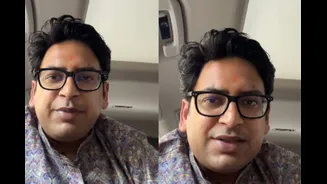The Conviction Unpacked
The conviction of Sheikh Hasina and her subsequent death sentence have raised many questions. The nature of the tribunal itself has become a subject of scrutiny,
with critics questioning its impartiality and the fairness of the proceedings. Discussions revolve around the evidence presented, the legal interpretations applied, and the overall due process followed. Observers are attempting to understand the underlying motivations and implications behind this extraordinary decision. Furthermore, the charges against Hasina, which were the basis of the trial, demand a thorough examination to determine the validity and scope of the accusations.
India's Delicate Position
India finds itself in a challenging position due to this matter. The implications of this verdict extend beyond the legal realm, influencing regional politics and diplomatic relations. India has a complex relationship with the involved parties, making its response a matter of strategic importance. The possibility of handing over Sheikh Hasina to Dhaka poses a difficult dilemma, forcing India to weigh its legal obligations against its political interests and the potential for unrest. The decisions made by India are sure to have ramifications that extend far beyond the immediate situation. Therefore, the country must carefully consider its actions and anticipate the consequences of each possible scenario.
Growing Public Discontent
The verdict against Sheikh Hasina has stirred significant unrest. Social media and various public platforms are filled with reactions, ranging from outrage and support to skepticism and condemnation. The sentiment among the population is split, with demonstrations and protests being organized. This reflects a deep-seated division within the society, with people having different perspectives on the fairness of the verdict. Factors like political affiliations, personal beliefs, and access to information significantly shape these reactions. This unrest poses a potential challenge to stability, requiring the authorities to manage public opinion and maintain order while also respecting the right to freedom of expression.
Political Vendetta or Justice?
The central question revolves around whether the verdict represents a historic judicial decision or a politically motivated act. The conviction’s timing, the nature of the evidence, and the background of the tribunal all contribute to the controversy. Some sources believe the proceedings are a legitimate pursuit of justice. Others view the case as a means of political retaliation, with the aim to eliminate a political opponent. This debate highlights the complexities of legal and political systems and their potential for manipulation. Whether the verdict is considered a just punishment or an act of political vengeance is determined by the observer's viewpoint, the evidence available, and the overall political climate.




















